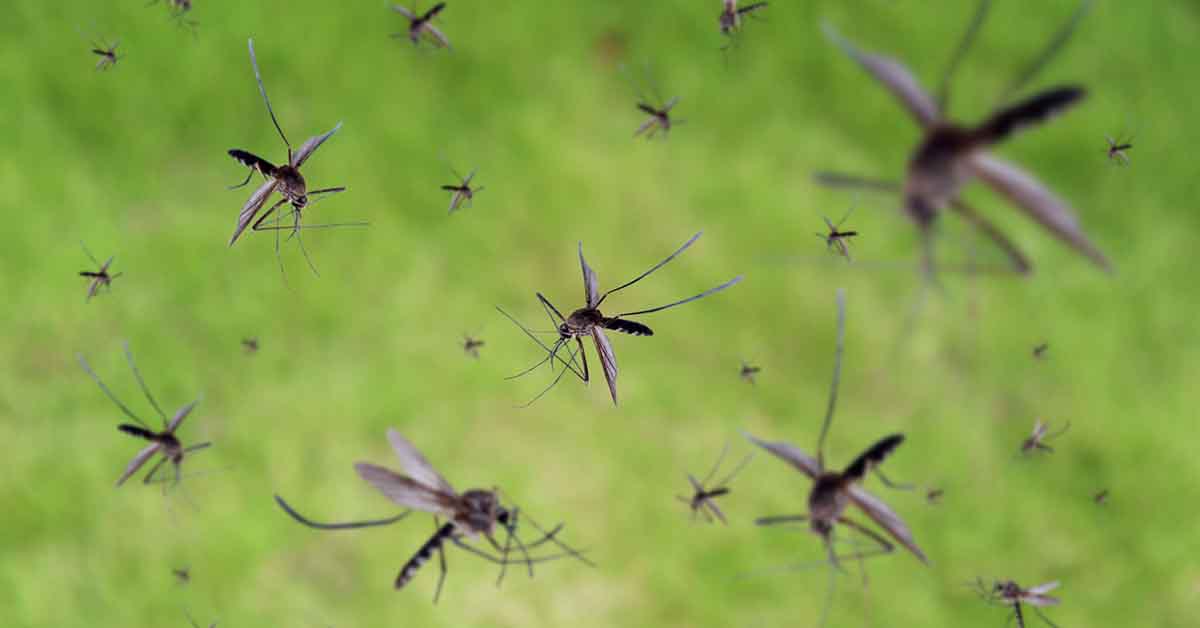Mosquitos: We hate them, you hate them.
For most people, the bite of a mosquito results in a small itchy bump, a nuisance that goes away after a few days. But for others, they can result in large welts and fever indicative of “Skeeter Syndrome”.
Here, we answer your questions about mosquito bites and Skeeter Syndrome.
Why do mosquitos bite?
Only female mosquitos bite in order to draw a blood meal filled with the proteins necessary to produce their eggs. Males live on plant juices such as nectar and don’t bite.
What happens as the mosquito feeds?
When a mosquito bites, it pierces the skin using a special mouthpart (proboscis) to suck up blood. As the mosquito is feeding, it injects saliva into the skin, which helps prevent the blood from coagulating while it feeds. This injection of saliva causes the symptoms that manifest shortly afterward.
What normally happens after being bitten?
It is normal immediately after a mosquito bite to develop a round and puffy bump. The bump soon becomes red and hard, with a small amount of swelling. It’s not uncommon to get multiple bites around the same time and area as a single insect will feed multiple times until it is full.
What causes the symptoms associated with mosquito bites?
The saliva injected by the mosquito is recognized as foreign by the immune system, which responds by producing antibodies. These antibodies stimulate mast cells — another immune system component — to produce histamine, the chemical that spurs inflammation and itch.
What is Skeeter Syndrome?
Skeeter syndrome is marked by significant inflammation where an allergy to the polypeptides in the mosquito’s saliva triggers an allergic reaction.
What are the symptoms of Skeeter Syndrome?
Symptoms may include:
- Large areas of swelling;
- Skin warmth;
- Skin color or texture changes, such as reddening of lighter skin or darkening or other appearance changes in darker skin. This also may include a hardening of the area;
- Itch;
- Pain;
- Blisters;
- Fever.
Is it possible to get anaphylaxis from a mosquito bite?
Anaphylaxis is a severe, life-threatening reaction to a food, drug, insect venom, or environmental substance. Although exceedingly rare, it is possible to develop anaphylaxis from a mosquito bite. If you suspect anaphylaxis, call emergency services immediately.
See our primer: How to Determine Whether it’s Anaphylaxis.
How is Skeeter Syndrome diagnosed?
There is no specific diagnostic test for Skeeter Syndrome.
Instead, a healthcare provider will take a medical history and perform a physical examination. They may ask:
- If you were bitten by mosquitoes;
- If you’ve had previous reactions to mosquito bites;
- If you’ve traveled to a different country or part of the country. Different types of mosquitoes have different types of saliva;
- About the timeline between when you were bitten and when the rash started;
- If you have any other signs and symptoms that concern you, such as shortness of breath.
How is Skeeter Syndrome treated?
For mild cases, a healthcare provider may suggest:
- Taking oral antihistamines.
- Covering the bite with hydrocortisone cream.
- Taking over-the-counter pain relievers/fever reducers such as acetaminophen or ibuprofen if you have pain, fever, or both.
For more severe cases, they may prescribe systemic corticosteroids administered via pills or injections.
How long does it take to recover from Skeeter Syndrome?
Symptoms generally resolve in 3-10 days.
- Mosquito Bite: Symptoms and Treatments — Healthline
- Skeeter Syndrome — Cleveland Clinic
- Mosquito Bites — Mayo Clinic
- Update on mosquito bite reaction: Itch and hypersensitivity, pathophysiology, prevention, and treatment — CDC






